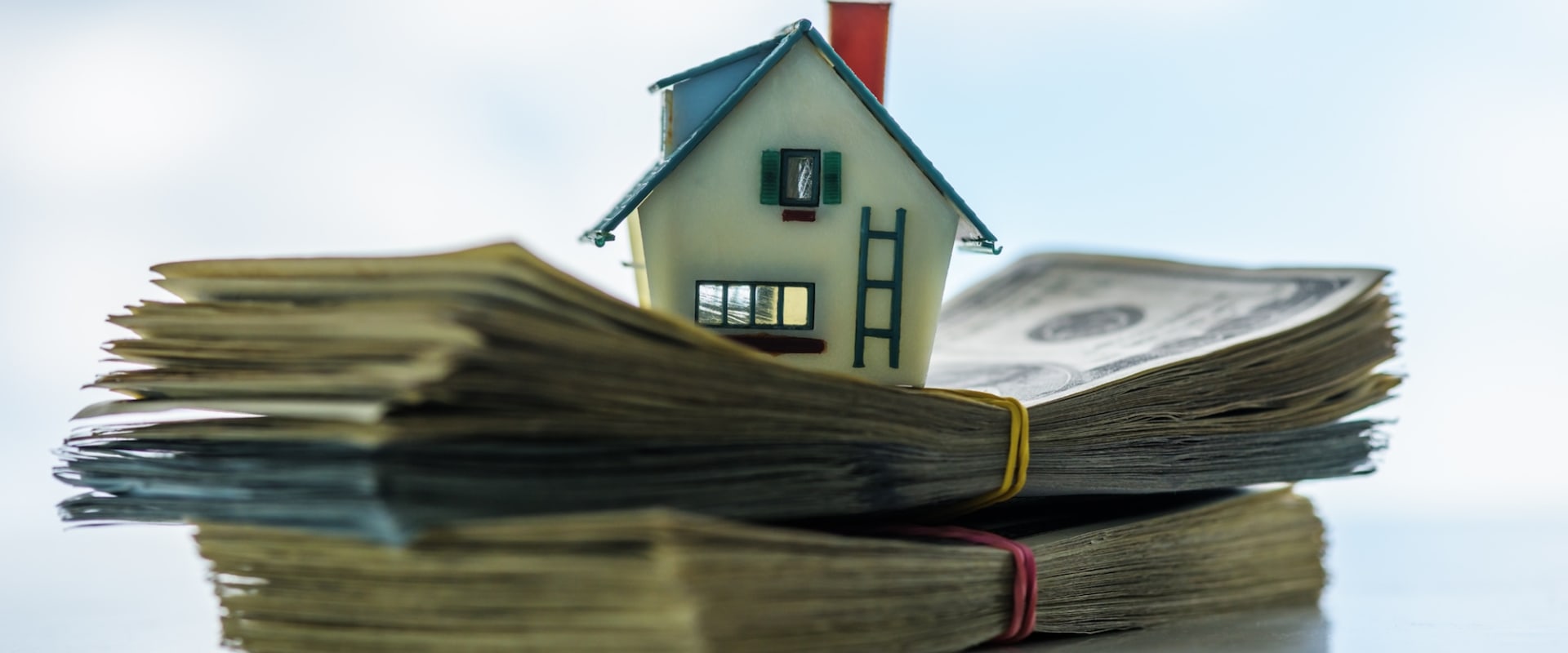Buying a home with cash can be a great way to save money and avoid the hassle of applying for a loan. It can also make your offer more attractive to a seller, as you won't have to worry about obtaining financing. However, there are certain drawbacks to consider, such as waiving mortgage interest deductions, exhausting savings, and losing future investment opportunities. When you apply for a fixed-interest loan, you lock in the payment of principal and interest for the entire term of the loan.
Your payment will be exactly the same amount 25 years from now if you apply for a 30-year loan today. Therefore, 25 years from now, your monthly payment will likely represent less money in relative purchasing power. Inflation works in your favor when you take out a fixed-interest mortgage. It starts with a sales commission measured in “points”, where 1 point equals 1% of the loan amount.
When loans are measured in hundreds of thousands of dollars, points accumulate quickly. Effectively reduce the real cost of your loan. If you pay taxes at the 24% tax rate and pay 4% interest, then your net cost is closer to 3% interest if you can pay off mortgage interest. Or you could just put in 20% to avoid PMI and move to your new home right away. There is no one-size-fits-all answer to whether you should buy a home with cash or finance it with a mortgage.
The financial realities of a 25-year-old are very different from those of a 70-year-old, for example. Being able to pay in cash can make your offer more attractive to a seller. Sometimes two parties agree on a purchase price, but the deal is closed because the buyer cannot obtain financing. If a seller receives multiple offers, you can pay in cash and others can't, the seller is more likely to accept your offer. Even if another buyer offers more money, the seller may accept a lower price if you can pay cash and the other buyer can't.Years ago, homeowners sometimes celebrated their final payments with parties that burned mortgages.
Today, the average homeowner is unlikely to stay in the same place long enough to pay off a 30-year or even 15-year mortgage. In addition, homeowners often refinance their mortgages when interest rates drop, which can extend their credit obligations in the future. Of course, you can borrow against your home equity, through a home equity loan, a home equity line of credit, or, if you're at least 62, a reverse mortgage. However, as Garry points out, all of these options have drawbacks, including loan fees and limits, so they shouldn't be taken casually. Paying cash also means no interest and can mean lower closing costs. When you pay in cash, you won't have to deal with lender-related closing costs, which translates into lower closing costs for you. If I open a 10-year certificate of deposit at 2.9% (for the same 350k) I'll end up having 84600 in interest (after tax, the same 28% tax rate), which means I'll pay 11k more in mortgage over the same 10-year period. Today, the average homeowner is unlikely to stay in the same place long enough to pay off a 30-year or even 15-year mortgage. In addition, homeowners often refinance their mortgages when interest rates drop, which can extend their credit obligations in the future. Of course, you can borrow against your home equity, through a home equity loan, a home equity line of credit, or, if you're at least 62, a reverse mortgage. However, as Garry points out, all of these options have drawbacks, including loan fees and limits, so they shouldn't be taken casually. Paying cash also means no interest and can mean lower closing costs. When you pay in cash, you won't have to deal with lender-related closing costs, which translates into lower closing costs for you. If I open a 10-year certificate of deposit at 2.9% (for the same 350k) I'll end up having 84600 in interest (after tax, the same 28% tax rate), which means I'll pay 11k more in mortgage over the same 10-year period.
I did the 30-year route myself, but recently I started to speed up my payments now that I have paid off all other non-consumer debts. I bought my two-bedroom apartment in Istanbul, Turkey, with cash in 2004, when the market was going down. If peace of mind is important to you, then paying your mortgage early or paying cash for your home in the first place may be a smart decision. A potential seller can also request proof that you have the cash, such as your last bank statement. If you're considering jumping into the housing market as a cash buyer, here are a few things to think about. But what if you don't need a mortgage? If you have enough cash reserves, you may be able to skip the mortgage loan altogether. I still have a large part left (30% of my annual pay) and I just put it in the savings account and pretend it's not there. Carefully consider your own personal needs and risk tolerance, and be careful not to strip every penny of your emergency fund and retirement accounts simply to buy a home.
I prefer to take care of repairs and get the money for it when it happens that someone continually tells me what to do. The amount you need for a down payment on a home depends on the type of mortgage you get, your financial details, and more. The peace of mind of knowing that you will always have a roof over your head can be one of the biggest and most important benefits of buying a home with cash. I never look at a free and clean house because there are always property taxes and insurance to pay.




